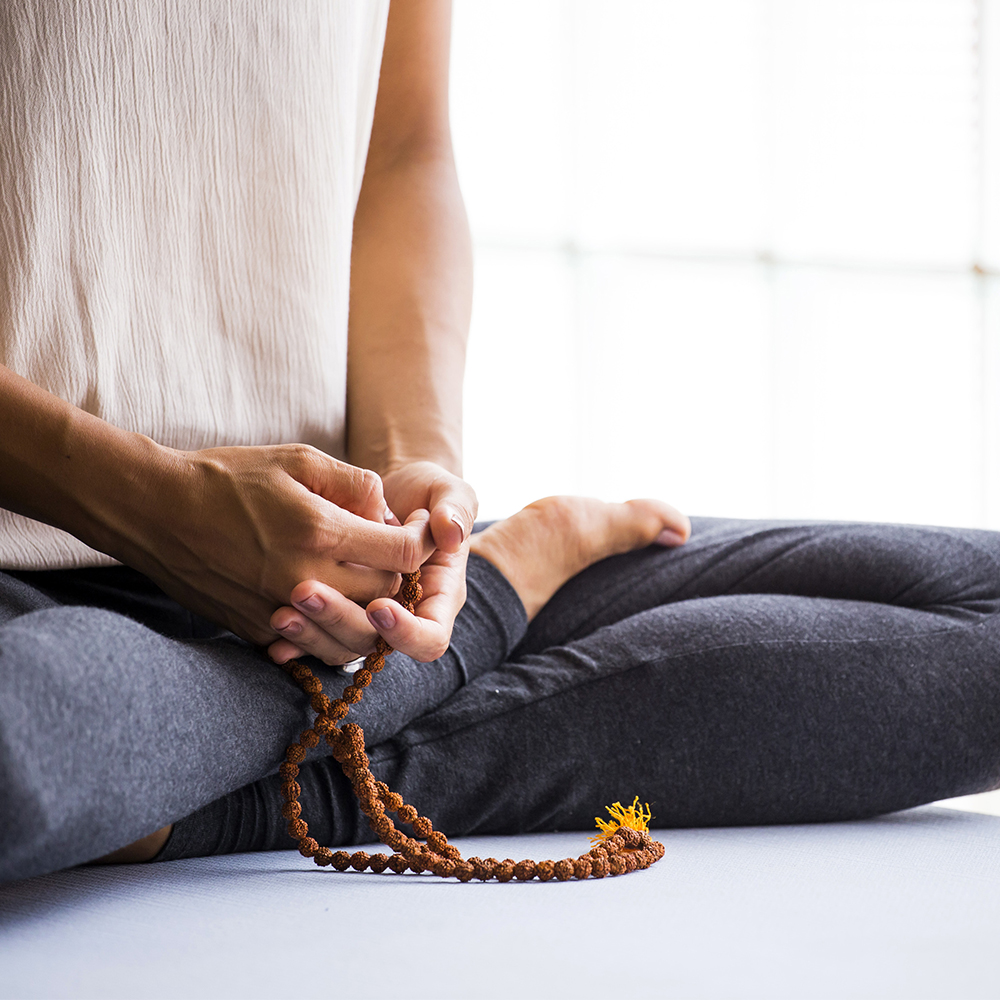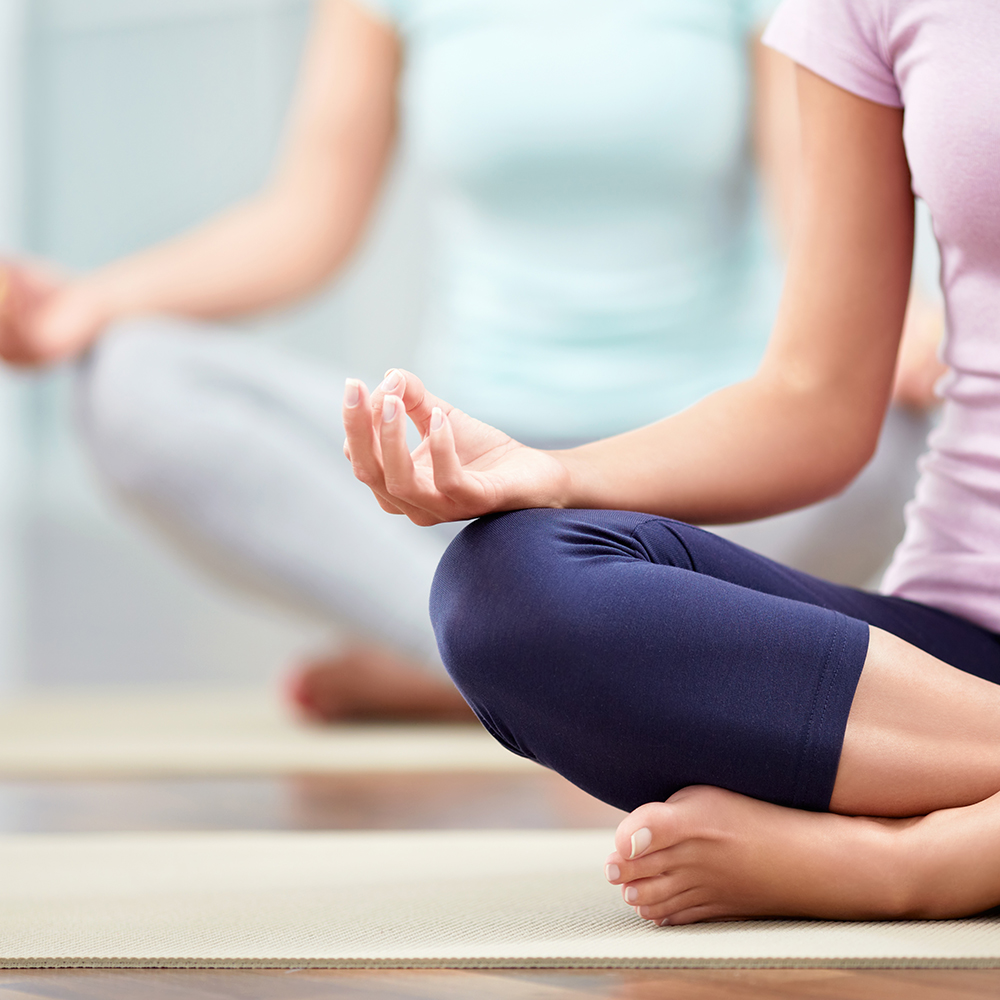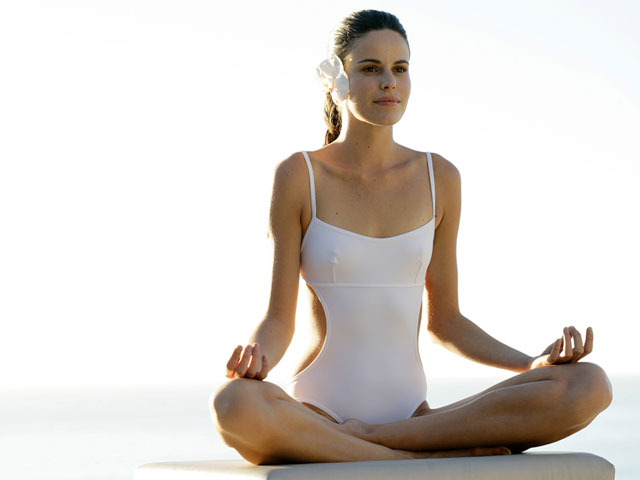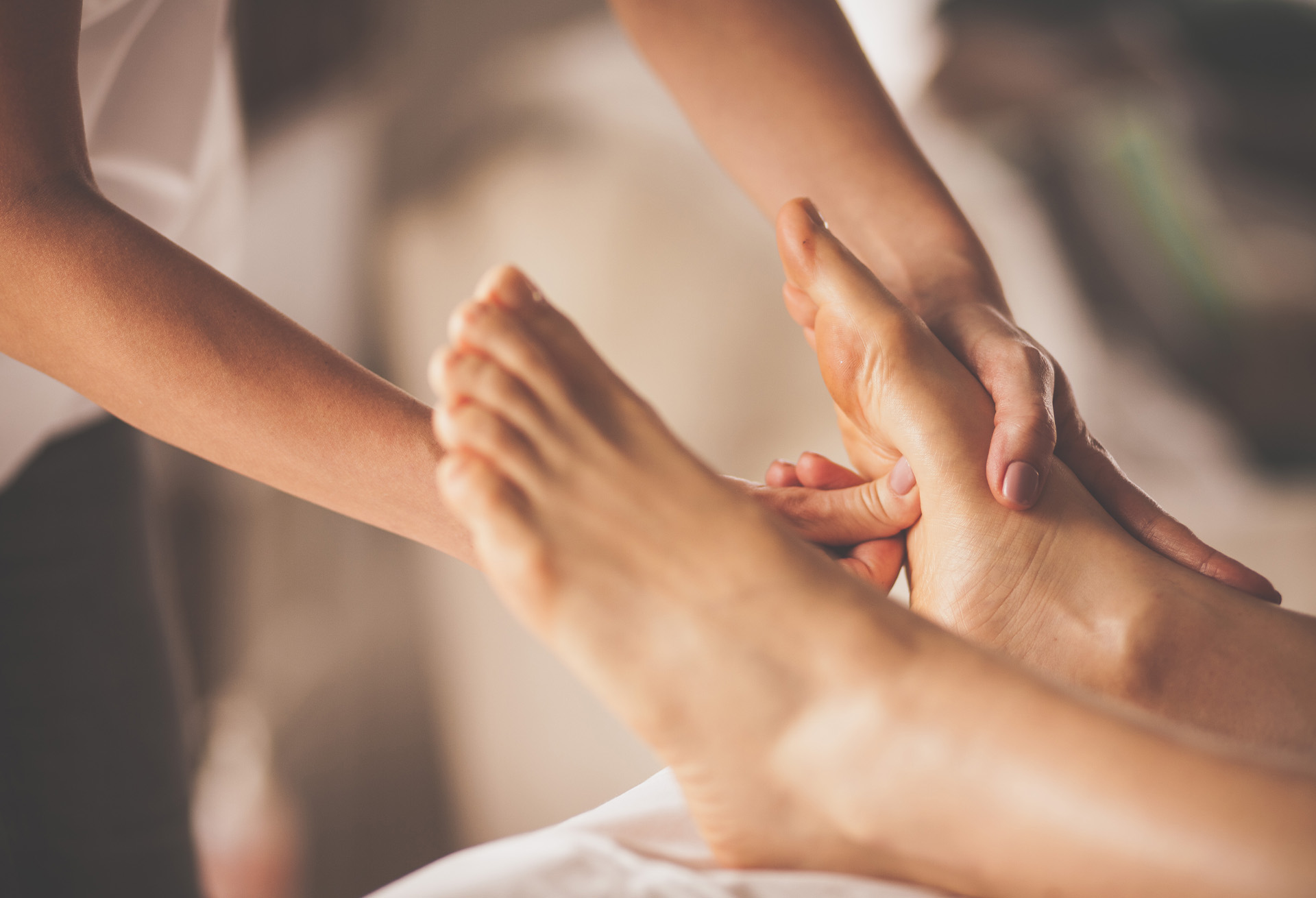Meditation has been touted as a natural remedy for stress that promotes self-awareness and emotional wellbeing. While this all sounds great, sitting down to do the task can be intimidating, but it doesn’t have to be. Meditation expert and founder and CEO of Mind Body Project Christopher Stockel suggests beginners approach meditation with curiosity rather than expectation. We heard from Stockel and other experts on practical tips for beginners to get a meditation practice going.
Start small
The thought of meditating can be overwhelming at first—so experts suggest starting small and trying to be consistent. Holistic skin expert, celebrity aesthetician and founder of the eponymous skin-care brand Tammy Fender says even two minutes a day can be a great way to start. “It is about building a habit one small step at a time. Notice how you feel beforehand and afterward—and congratulate yourself for the smallest efforts!”
Yoga and meditation guide Christina Ionno says dedicating even a few minutes a day to practicing meditation “can be incredibly beneficial for mental clarity, serenity, productivity and all-around wellbeing.”

Allow the mind to wander
Ionno notes that it’s natural for the mind to wander, so let it, and notice where it goes, then gently pull it back. “I often hear from our students at Mind Body Project, ‘I’m so bad at meditating because I can’t clear my mind.’ Clearing of the mind is a common misconception in terms of meditation goals,” says Stockel. “The practice is not to clear the mind, but rather observe the mind’s thoughts non-judgmentally whether it is seemingly overactive or quiet.”
Meditation expert, biohacker and emotional healer Frank Elaridi of Modern Nirvana says the key to meditating at the beginning “is not to try not to think, but rather become aware of the thoughts. Witness them.” He compares the phenomenon to “a dog walking down the street. You want to witness the thought and let it pass rather than hold on to it or try to make it go away. Be gentle with yourself, and don’t take it too seriously so that meditation becomes enjoyable and not a chore.”

Find the style of meditation that suits you
You shouldn’t simply stick to a form of meditation that isn’t sitting right with you. “Find a style of meditation you actually like. There are so many options out there, so try a variety of formats to see what resonates best for you,” advises meditation expert and founder and CEO of Cacti Wellness, Kira Jones-Matousek.
If sitting still and paying attention to your breathing doesn’t feel good to you, Fender says skip it. “Try sitting in nature and breathing, or spending several minutes in gratitude. Try walking meditation with awareness and intent,” says Fender. “All of these practices are so beneficial, and what ‘meditation’ becomes for you will be a process of discovery.”

Coordinate your meditation with your day
Meditating can be beneficial anytime, but holistic healer, Alexander Technique teacher and founder of H. Gillerman Organics, Hope Gillerman, says different times of day can have unique benefits. “Meditating in the morning is best for setting you up for your day—getting you focused and removing the clutter,” explains Gillerman. She suggests doing it first thing in the morning before you get distracted.
Nighttime meditation can help with falling asleep or going back to sleep if you awake in the middle of the night. Gillerman says you can use guided meditation apps while in bed. She notes this is a different practice than “sitting meditation where you are learning how to control your mind.” The sleep apps will help relax the mind into unconsciousness. She finds that these apps could be a good “gateway to sitting meditation.”

Connect with a community
Ionno suggests seeking a meditation community or studio that aligns with your values and goals. “There are countless apps online or places to visit in person. This is an excellent way to test out what styles of meditation you like best and will most consistently keep up with,” says Ionno. “There is something special and powerful about practicing meditation within a group.” Gillerman notes that meditating with others can even make meditation much easier.

Try guided meditation
Guided meditation is a great option for beginners. Jones-Matousek says you can find plenty of guided meditations on apps, Spotify or YouTube. “It can take some trial and error to find your favorite instructor, but the prompts can be super helpful to keep yourself focused on the meditation.”

Find the right meditation guide for you
Just like any other practice, finding the right teacher can be the difference between a great student and a struggling student. Ionno says it’s important to discover a meditation guide that resonates with you. “Oftentimes, they can provide one-on-one guidance to curate the experience to best serve you and build a strong bond and hold you accountable to show up for practice.”

Don’t be forceful
As much as you want meditation to become part of your life, you can’t force it. “When you start getting into meditation, it’s so important not to import forceful habits into your practice,” warns Fender. “Meditation helps dissolve stress and shouldn’t become another stress in your life.”

Get in the right position
It’s not a coincidence that meditating yogis are often depicted cross-legged on the floor—this is an optimal position for the practice. “Ancient yogis of the past actually had the science of the body down to such a degree that they knew certain hand positions or seating positions could change the chemistry of the body, focus in the mind and so on,” explains Elaridi.
He suggests sitting in a cross-legged position or in a chair if you can’t cross your legs with your hands open, facing up in your lap. “Open hands facing upwards indicate a body and consciousness that is ready to receive and accept.”

Use essential oils
To enhance your meditation experience, bring essential oils into play. Gillerman explains that essential oils affect our autonomic nervous system as the “articles penetrate the brain, electric impulses go to the part of the brain where we experience our base emotions.” She says they can induce happiness, reduce anxiety and help us feel more present. For stress, she recommends frankincense, lavender and tangerine. To stay alert and focused, try lemon, grapefruit and lime.

Focus on your breath
This tip almost sounds too easy, but it’s actually super helpful. Jones-Matousek suggests saying in your mind, “inhale” as you inhale and “exhale” as you exhale. “In turn, you’ll be able to crowd out the racing mind and thoughts,” says Jones-Matousek. When doing this avoid manipulating the breath, warns Elaridi. “The breath on its own will get slower and deeper.”

Create a mantra
“Mantras can be a helpful way to focus the mind,” says Elaridi. There is a variety of mantras for a multitude of intentions. “Choose one specific mantra and repeat it over and over again in your mind until you transcend the thought patterns in the mind,” he advises. “Mantras can be powerful Sanskrit words like ‘om’ the divine sound of creation, or ‘aham prema’ meaning ‘I am divine love’ or you can use a positive affirmation mantra like ‘I am not my thoughts, I am divine love.’”

Just get started
You can’t be good or bad at meditating unless you give it a shot. Yoga and meditation teacher Tess Koenig’s biggest tip for beginners is to simply start. She notes that it takes some time to get used to, which is why it’s called a practice.
“Sit down and focus on your breath for five minutes at the same time each day. When you’ve conquered that, maybe you advance to 10 minutes a day,” suggests Koenig. “The key here is not to come out of your first meditation with expectations of feeling enlightened or disappointed if it didn’t go so well. Instead, acknowledge when thoughts come in, and invite them to see their way out, coming back to your inhale and exhale over and over again.”

Go on a retreat
Although a retreat may sound like an experience restricted to meditation pros, it could be a great way to kickstart your journey with the practice. “Total immersion can give you a real leg up. Without distractions, you can see what is really standing in your way,” says Gillerman. “Plus, you will learn new methods and be with others, which is proven to help with memory and concentration.”


















